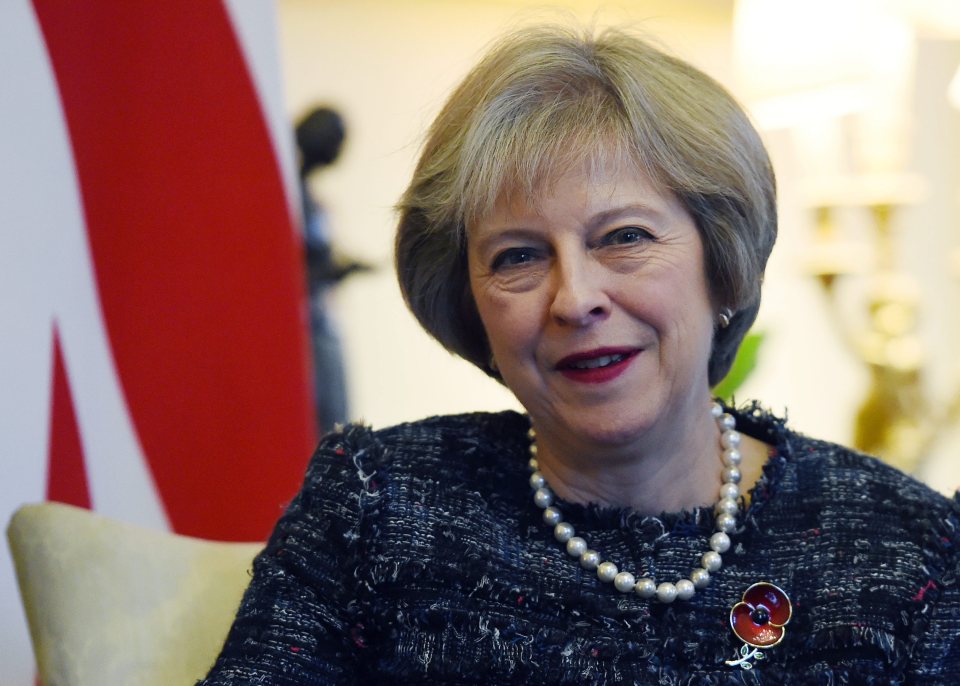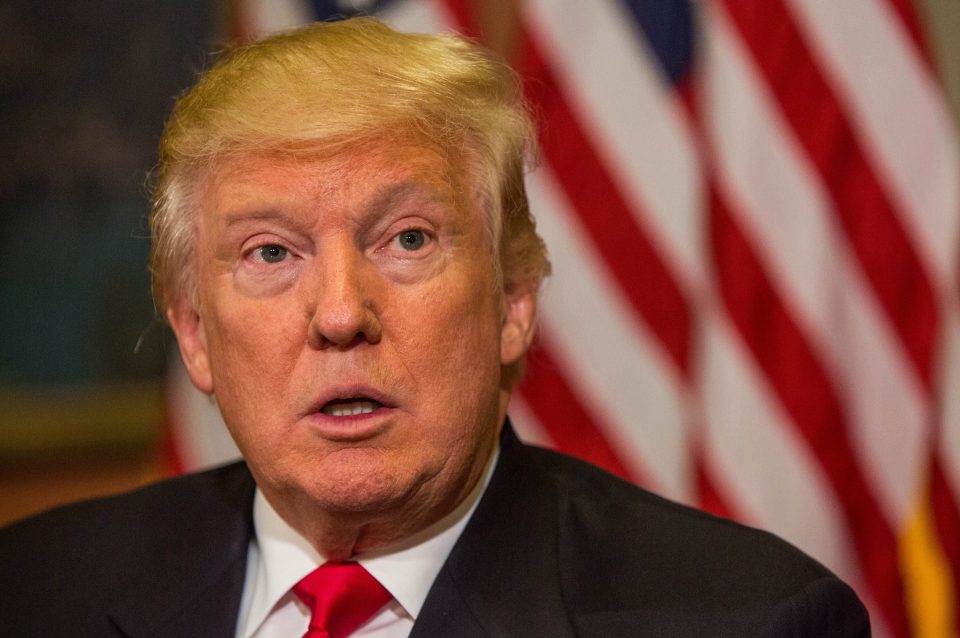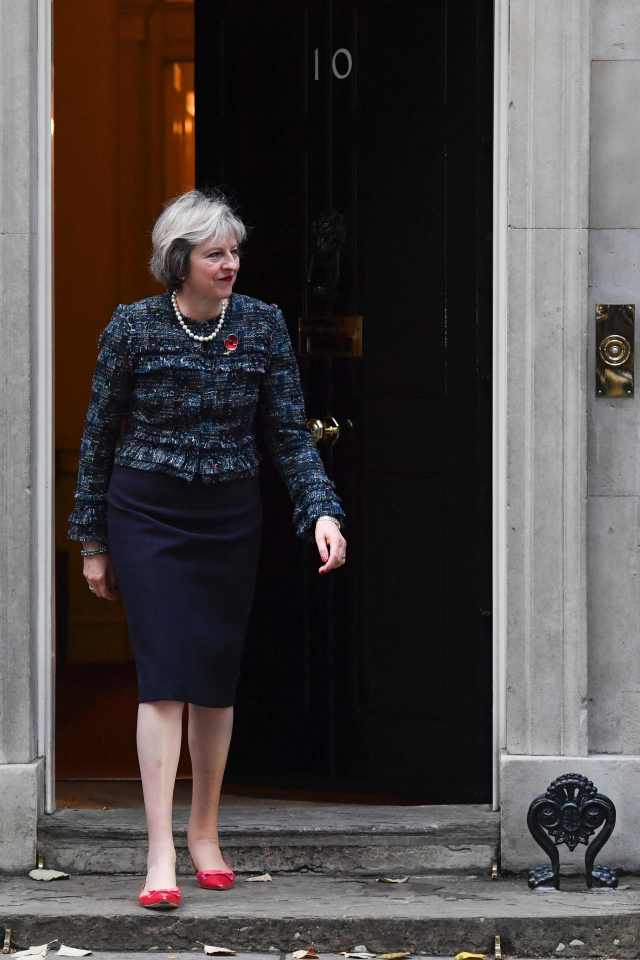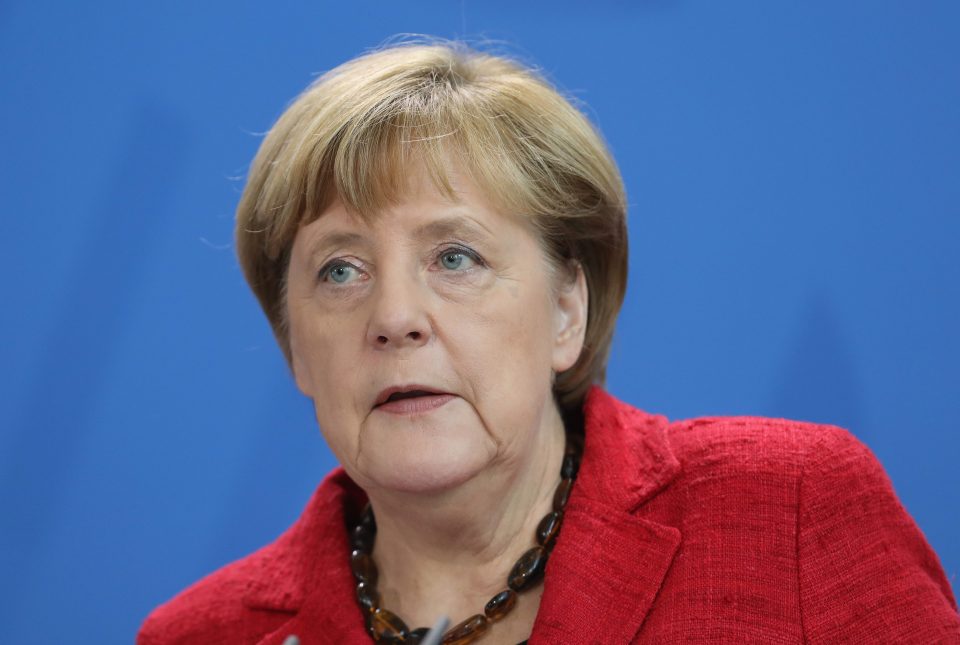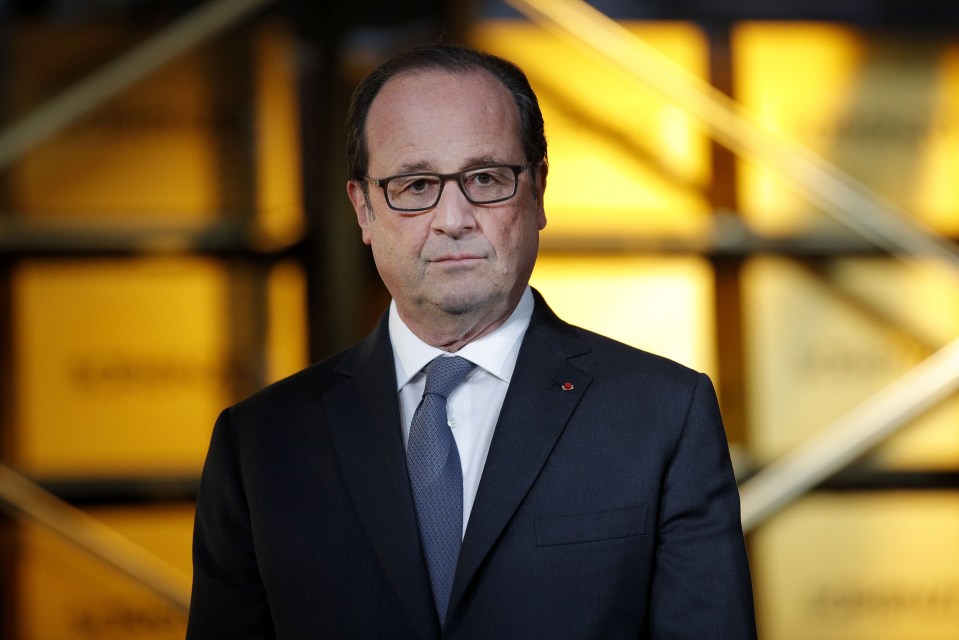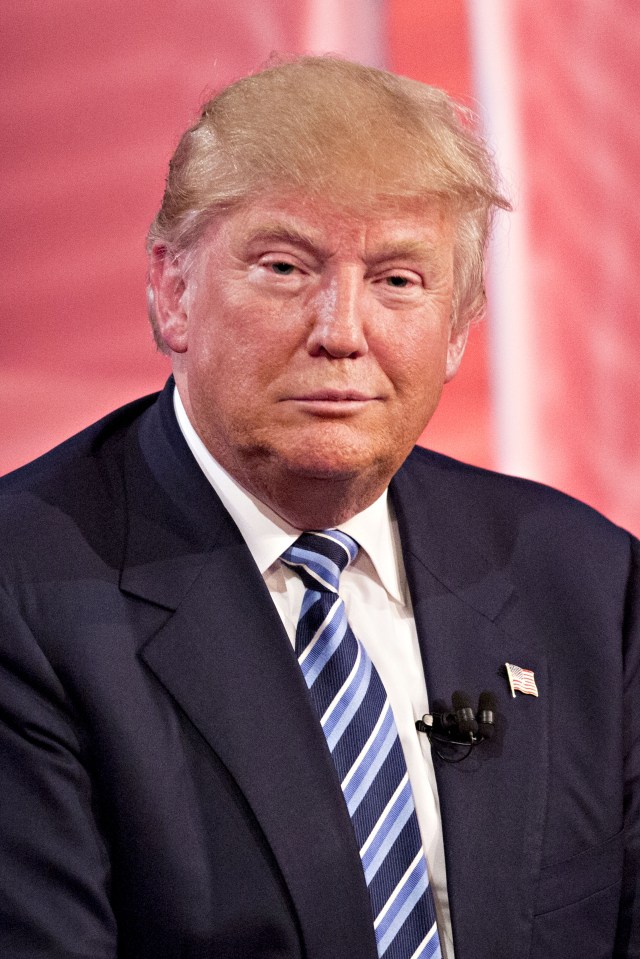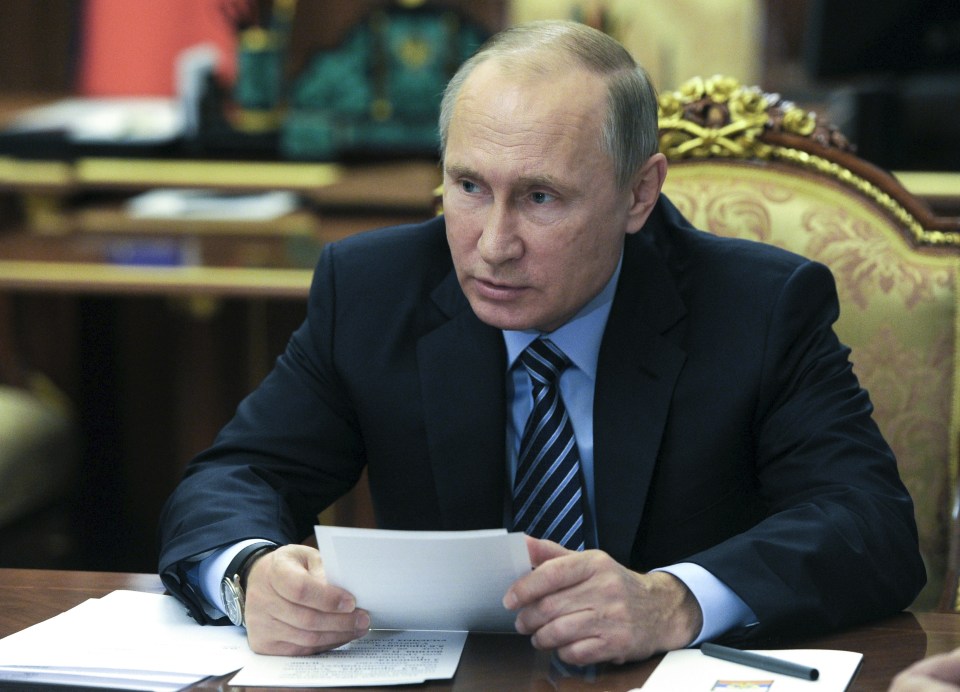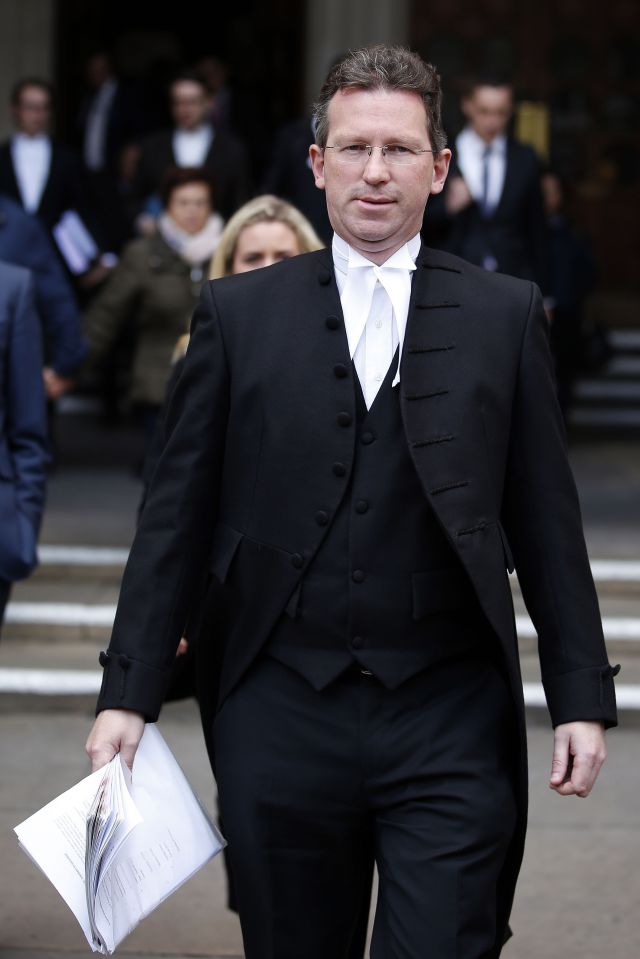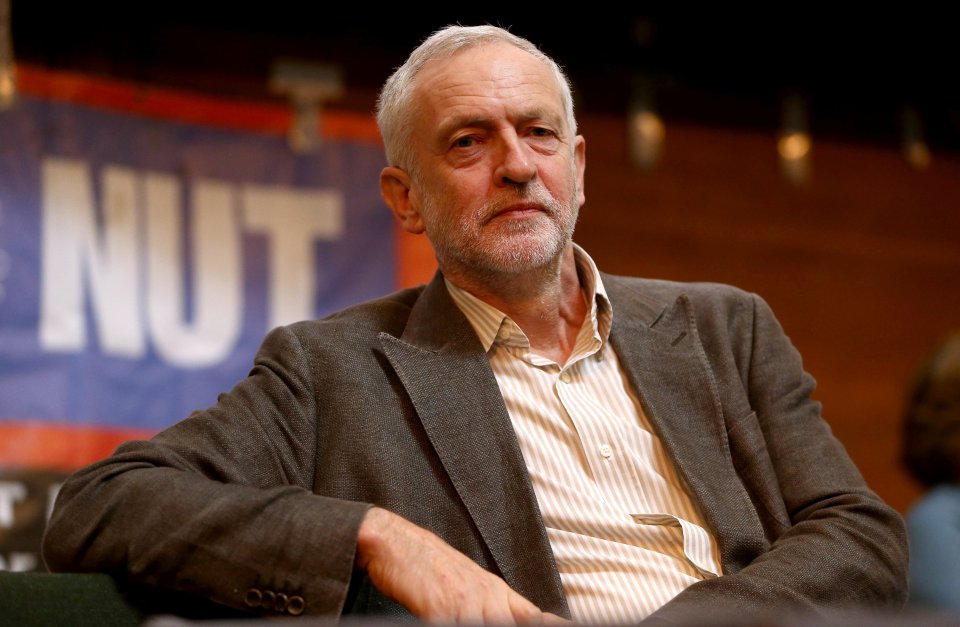The US President-elect Donald Trump is a real gift to Theresa May’s Brexit negotiations
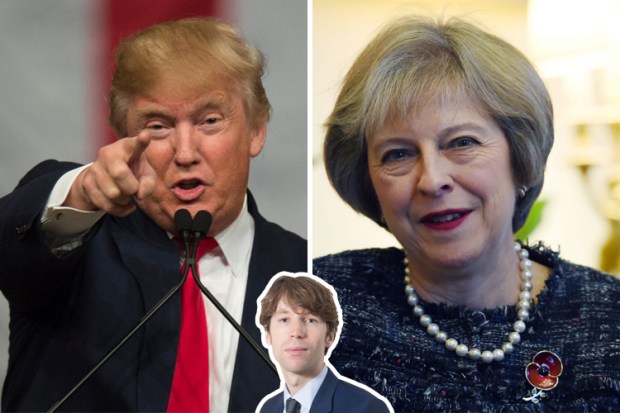
THERESA MAY now has a bunch of Trumps in her Brexit negotiating hand.
Donald Trump’s victory has put Britain in a far stronger position heading into its exit talks with the EU.
Brexit’s critics used to claim that quitting the EU would leave this country isolated on the world stage.
But you can’t claim that when the President-elect of the most powerful country on Earth is in favour of it.
Indeed, the next US President is more pro-Brexit than the British Prime Minister: He backed it before the referendum.
Gone is all the talk about Britain going “to the back of the queue” after Brexit, to be replaced by warm words about Trump’s desire for a spectacular relationship with the UK.
French and German elections next year mean their leaders will use Trump as a domestic punch-bag. Just look at Angela Merkel’s snippy note saying she would work with him if he respected fundamental, democratic values.
This presents an opportunity for Mrs May, and Britain.
This isn’t about liking Trump or endorsing his views. It is simply being realistic: He is the next US President and Britain has to deal with him.
After all, working with Trump is far less compromising than cooperating with the undemocratic Chinese government. At a time when the Atlantic seems particularly wide, Mrs May has a chance to make herself — and Britain — the bridge across it.
As one Cabinet minister tells me, if Mrs May gets it right she can be the one to persuade Trump that, “European security still matters to America’s national security”.
Even if she can’t do that, Trump still strengthens her negotiating hand with the EU.
If the US starts backing away from its obligation to defend other Nato members from attack then Britain’s nuclear deterrent and military forces will become far more important than before to Europe’s security.
“If you’re the Baltics, you’re more concerned than ever to have a relationship with the UK post-Brexit that maintains security cooperation,” says one senior Government figure.
You can’t do that if at the same time you’re trying to punish Britain for leaving the EU.
These countries also now have something more important than free movement to worry about in these negotiations — their national security.
The European Commission is busy arguing that the response to Trump should be the creation of an EU army. But this will take years to become reality, if it ever does.
Then there’s the problem of who is going to pay for it? Germany spends a measly 1.2 per cent of GDP on defence, Italy 1.1 per cent and Spain less than one per cent.
Little wonder Eastern Europe would rather rely on Nato and the US for protection against Russia.
On Monday night Mrs May will make her first big foreign policy speech. She will argue that you have to change globalisation to save it, that popular discontent can’t simply be ignored.
She is right about that. But the response must not be a destructive return to protectionism. She must do all she can to steer Trump away from this.
For if she can make a success of it, then it is far more likely that Britain will make a success of Brexit.
Article 50 appeal is risky business
THE Attorney General, Jeremy Wright, believes that a parliamentary vote on Brexit would help the Government in its Article 50 appeal.
This decision threatens Theresa May’s Brexit timetable.
She wants to formally tell the EU we are planning to leave by the end of March 2017.
Related stories
But the Government is appealing to the Supreme Court, seeking to overturn the decision. In a private meeting with Tory MPs this week, the Attorney General was asked if a parliamentary resolution on Article 50 would be helpful.
Mr Wright, inset, replied that it would strengthen his hand in court.
However, he also acknowledged that whether or not to hold such a vote was a decision for others. One of those intimately involved in the Government’s approach to Brexit says there is “no Government plan to do that”.
Mr Wright also cautioned the MPs present that if the Government said that Article 50 was reversible, it would make this a case about European law, with the risk that it would end up being appealed in the European Court of Justice in Luxembourg.
But the Government is taking a big risk with its appeal to the Supreme Court.
For as one minister warns, there is a danger the Supreme Court could not only back up the High Court’s verdict but, “drive a coach and horses through the prerogative”, limiting Mrs May’s power on a whole host of issues.
Banking on you, Theresa
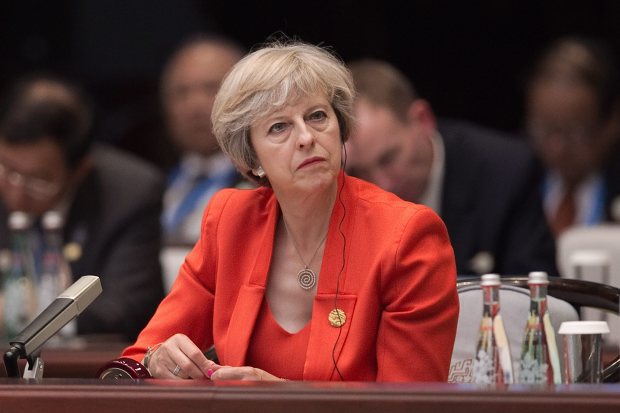
THERE are some things Theresa May needs to start saying about Brexit – and soon.
It is understandable she doesn’t want to set out her negotiating bottom-lines before the talks have begun. But what she needs to make clear is what she will do if there is no exit deal.
She should start by telling the banks that are considering relocating that if no deal can be done with the EU, the UK will take an axe to Brussels-imposed financial services red tape and abolish the corporation tax surcharge banks currently must pay.
Government sources say it isn’t planning to do this. But as influential City figures point out, without this reassurance banks will simply plan on a worst-case scenario basis.
Also, by showing the EU that Britain has options, such an approach would make it more likely that a Brexit deal gets done.
Foolish to resist Trident
THE past few days have made the case for Britain’s nuclear deterrent.
In an unpredictable world, our nuclear weapons are the ultimate insurance policy. They mean that whoever is in the White House, Britain can deter countries that wish us ill and also offer protection to our allies.
Trump’s election makes Jeremy Corbyn’s opposition to the renewal of the Trident nuclear deterrent look even more foolish.
And foolish to resist fracking
ONE of Donald Trump’s priorities is to make the US energy independent.
To that end, he’ll massively promote fracking – cutting back further on Federal environmental regulations and the like.
US energy independence will have a huge impact on the world.
A US self-sufficient in energy will be far less interested in policing the Middle East.
This is another reason why Britain must get on with fracking.
It is imperative we do as much as we can to reduce our reliance on energy from unstable parts of the world.
If we don’t, we’ll live to regret it.


